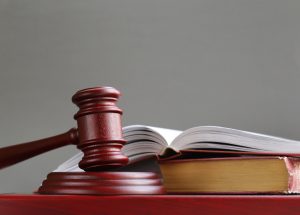
Indianapolis Criminal Defense 317-636-7514
The Fourth Amendment of the United States Constitution gives citizens the right to be free of unlawful or unreasonable searches and seizures by law enforcement officials. In fact, this very search and seizure law is one of the trademarks of our country’s criminal justice system. It means that police and other forms of law enforcement must have a good reason to legally search a person or their property, as well as, seize personal belongings or make an arrest.
“Good reason” is established when police identify tangible evidence or facts that leads them to believe a person is committing, has committed, or intends to commit a crime. This is also referred to as probable cause. If sufficient probable cause is present during a police encounter in a place where privacy is not expected, a search and seizure is not deemed unreasonable, therefore, it is not illegal. Places where privacy is not expected include anything that is in plain view or public, such as the front seat of a car, disposed garbage, and public places.
Places where privacy is expected: private residence, hotel room, trunks of cars, luggage, and even a closed telephone booth. To help understand what is legal and what’s not, continue reading for some examples of unlawful search and seizures.
Traffic Violation Stop
Janet is pulled over for speeding. The officer learns that her license and suspended and she does not have auto insurance coverage for the vehicle. For this reason, he must have the car impounded. During a legal vehicle impound, an officer is allowed to conduct an inventory search of the contents of the vehicle. But the search must be conducted according to standard police regulations and procedures. The officer asks Janet to step out of her vehicle and stand in front of his squad car.
She exits her vehicle, taking her purse with her, and follows his orders. As she is standing in front of the police car holding her purse, the cop instructs her to place her purse in the trunk of her car instead. Now that the purse is in her vehicle, the police officer uses the opportunity to search the contents of her purse as part of the inventory search. As a result, he finds a small amount of marijuana in her purse, and then he arrests her on drug possession charges.
Later, the court finds that: 1) the search did not comply with the standard regulations for an inventory search, 2) the defendant had her purse outside of the vehicle when the officer instructed her to place it back inside, and 3) there was no evidence of criminal traffic violation, only standard traffic infractions. Since the courts ruled that the search was unlawful, the evidence found during the search was dismissed. And although the impounding and inventory search were legal, the search of her purse was not. So in the end, Janet was not charged with drug possession.
Noise Disturbance Call
Amy is fighting with her live-in boyfriend Dan. Neighbors call the police to report the noise. By the time the police arrive, Amy and Dan have calmed down and reconciled. They consent to letting the police inside their living room to discuss the calls from neighbors and to confirm that there isn’t a problem. The responding officers so not see anything illegal around the immediate areas of the apartment.
But as the couple is questioned by one officer, the other cop continues to search the rest of the apartment, opening cabinets and closet doors. In the back bedroom closet, the officer finds a stash of prescription-grade medication that is not prescribed to Amy or Dan. They seize the drugs and make the arrests.
Later, the courts find that the police officers unlawfully searched their home, so any evidence found during the unlawful search was dismissed. So neither Amy nor Dan was criminally charged. This is because law enforcement did not have a warrant to search the rest of their property. Cops could only make an arrest in this situation had they found evidence of a crime in plain sight. Law enforcement cannot open drawers and cabinets, search in closets, lift furniture, or implement an type of excessive search of a property without permission.
Call a Lawyer for Help
The laws surrounding our fourth amendment and search warrants is very complex, and differs from case to case. With so many details that can influence whether or not a search and seizure is lawful, it is important to consult an experienced criminal defense lawyer to learn your rights, as well as, the facts surrounding your case.
Indianapolis Criminal Defense

Criminal Defense Lawyer 317-636-7514
Call David E. Lewis, Attorney at Law, at
317-636-7514 if you were recently searched and arrested by police, and you believe it was unreasonable or illegal. He offers aggressive
Indianapolis criminal defense, and stops at nothing to protect your rights and preserve your freedoms. Our law firm offers free initial consultations to discuss your criminal charges and a strategy for defense. Call 317-636-7514 to schedule an appointment with an experienced
criminal defense attorney in Indianapolis, IN today.















